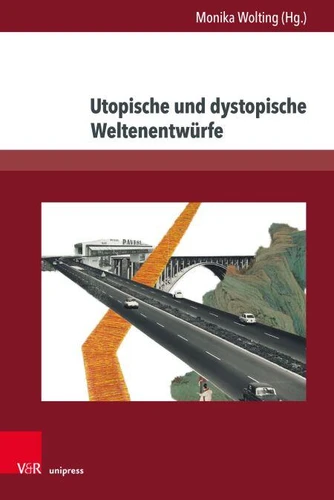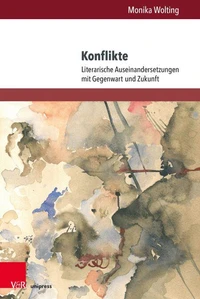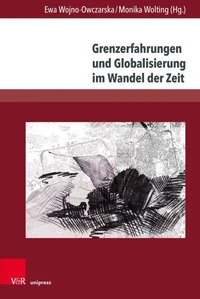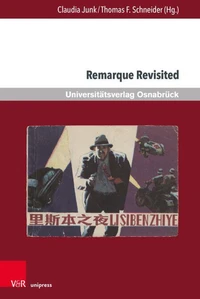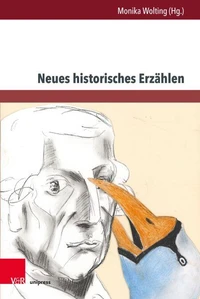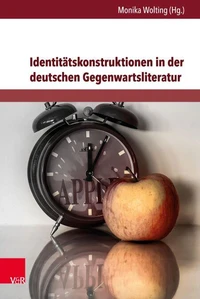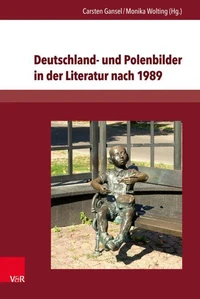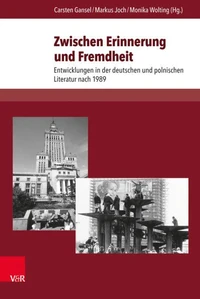Utopische und dystopische Weltenentwürfe
Par : , , ,Formats :
Disponible dans votre compte client Decitre ou Furet du Nord dès validation de votre commande. Le format PDF est :
- Compatible avec une lecture sur My Vivlio (smartphone, tablette, ordinateur)
- Compatible avec une lecture sur liseuses Vivlio
- Pour les liseuses autres que Vivlio, vous devez utiliser le logiciel Adobe Digital Edition. Non compatible avec la lecture sur les liseuses Kindle, Remarkable et Sony
 , qui est-ce ?
, qui est-ce ?Notre partenaire de plateforme de lecture numérique où vous retrouverez l'ensemble de vos ebooks gratuitement
Pour en savoir plus sur nos ebooks, consultez notre aide en ligne ici
- Nombre de pages326
- FormatPDF
- ISBN978-3-8470-1417-1
- EAN9783847014171
- Date de parution11/04/2022
- Protection num.pas de protection
- Taille6 Mo
- Infos supplémentairespdf
- ÉditeurV&R Unipress
Résumé
Von unterschiedlichen wissenschaftlichen Perspektiven ausgehend zeigen die Beiträge dieses Bandes Vorstellungen von Zukunftsvisionen in Texten der Vergangenheit und Gegenwart. In der deutschsprachigen Literatur lassen sich innovative Modelle eines möglichen zukünftigen Lebens finden. Diese Welt- und Gesellschaftskonzepte sind als Reaktion auf kulturelle und wissenschaftliche Entwicklungen, auf künstlerische Strömungen und vorherrschende Lebensgefühle zu lesen.
Des Weiteren knüpfen sie an zunehmende globale Verflechtungen, den Klimawandel, die Digitalisierung sämtlicher Lebensbereiche sowie Fragen nach der Diversität der Geschlechter an. Im Fokus des Bandes stehen Reflexionen vom 18. bis 21. Jahrhundert über eine potenzielle Zukunft u. a. aus Sicht von Clemens Brentano, Gotthold Ephraim Lessing, Elias Canetti, Wim Wenders, Uwe Timm, Elfriede Jelinek, Thomas Köck, Navid Kermani, Sasa Stanisic, Ilija Trojanow, Marius von Mayenburg sowie Eva Menasse. The contributions in this volume show concepts of future visions in writings of the past and present from various scientific perspectives.
Innovative models of a possible future life can be found in German literature. These global and social concepts are to be read as reactions to cultural and scientific developments, as well as cultural movements and dominating feelings of live. Furthermore, they are connected to increasing global interdepences, climate change, digitalisation in all aspects, as well as issues on diversity and gender.
The volume focuses on reflexions from the 18th to 21st century on a potential future from the perspectives of Clemens Brentano, Gotthold Ephraim Lessing, Elias Canetti, Wim Wenders, Uwe Timm, Elfriede Jelinek, Thomas Köck, Navid Kermani, Sasa Stanisic, Ilija Trojanow, Marius von Mayenburg and Eva Menasse among others.
Des Weiteren knüpfen sie an zunehmende globale Verflechtungen, den Klimawandel, die Digitalisierung sämtlicher Lebensbereiche sowie Fragen nach der Diversität der Geschlechter an. Im Fokus des Bandes stehen Reflexionen vom 18. bis 21. Jahrhundert über eine potenzielle Zukunft u. a. aus Sicht von Clemens Brentano, Gotthold Ephraim Lessing, Elias Canetti, Wim Wenders, Uwe Timm, Elfriede Jelinek, Thomas Köck, Navid Kermani, Sasa Stanisic, Ilija Trojanow, Marius von Mayenburg sowie Eva Menasse. The contributions in this volume show concepts of future visions in writings of the past and present from various scientific perspectives.
Innovative models of a possible future life can be found in German literature. These global and social concepts are to be read as reactions to cultural and scientific developments, as well as cultural movements and dominating feelings of live. Furthermore, they are connected to increasing global interdepences, climate change, digitalisation in all aspects, as well as issues on diversity and gender.
The volume focuses on reflexions from the 18th to 21st century on a potential future from the perspectives of Clemens Brentano, Gotthold Ephraim Lessing, Elias Canetti, Wim Wenders, Uwe Timm, Elfriede Jelinek, Thomas Köck, Navid Kermani, Sasa Stanisic, Ilija Trojanow, Marius von Mayenburg and Eva Menasse among others.
Von unterschiedlichen wissenschaftlichen Perspektiven ausgehend zeigen die Beiträge dieses Bandes Vorstellungen von Zukunftsvisionen in Texten der Vergangenheit und Gegenwart. In der deutschsprachigen Literatur lassen sich innovative Modelle eines möglichen zukünftigen Lebens finden. Diese Welt- und Gesellschaftskonzepte sind als Reaktion auf kulturelle und wissenschaftliche Entwicklungen, auf künstlerische Strömungen und vorherrschende Lebensgefühle zu lesen.
Des Weiteren knüpfen sie an zunehmende globale Verflechtungen, den Klimawandel, die Digitalisierung sämtlicher Lebensbereiche sowie Fragen nach der Diversität der Geschlechter an. Im Fokus des Bandes stehen Reflexionen vom 18. bis 21. Jahrhundert über eine potenzielle Zukunft u. a. aus Sicht von Clemens Brentano, Gotthold Ephraim Lessing, Elias Canetti, Wim Wenders, Uwe Timm, Elfriede Jelinek, Thomas Köck, Navid Kermani, Sasa Stanisic, Ilija Trojanow, Marius von Mayenburg sowie Eva Menasse. The contributions in this volume show concepts of future visions in writings of the past and present from various scientific perspectives.
Innovative models of a possible future life can be found in German literature. These global and social concepts are to be read as reactions to cultural and scientific developments, as well as cultural movements and dominating feelings of live. Furthermore, they are connected to increasing global interdepences, climate change, digitalisation in all aspects, as well as issues on diversity and gender.
The volume focuses on reflexions from the 18th to 21st century on a potential future from the perspectives of Clemens Brentano, Gotthold Ephraim Lessing, Elias Canetti, Wim Wenders, Uwe Timm, Elfriede Jelinek, Thomas Köck, Navid Kermani, Sasa Stanisic, Ilija Trojanow, Marius von Mayenburg and Eva Menasse among others.
Des Weiteren knüpfen sie an zunehmende globale Verflechtungen, den Klimawandel, die Digitalisierung sämtlicher Lebensbereiche sowie Fragen nach der Diversität der Geschlechter an. Im Fokus des Bandes stehen Reflexionen vom 18. bis 21. Jahrhundert über eine potenzielle Zukunft u. a. aus Sicht von Clemens Brentano, Gotthold Ephraim Lessing, Elias Canetti, Wim Wenders, Uwe Timm, Elfriede Jelinek, Thomas Köck, Navid Kermani, Sasa Stanisic, Ilija Trojanow, Marius von Mayenburg sowie Eva Menasse. The contributions in this volume show concepts of future visions in writings of the past and present from various scientific perspectives.
Innovative models of a possible future life can be found in German literature. These global and social concepts are to be read as reactions to cultural and scientific developments, as well as cultural movements and dominating feelings of live. Furthermore, they are connected to increasing global interdepences, climate change, digitalisation in all aspects, as well as issues on diversity and gender.
The volume focuses on reflexions from the 18th to 21st century on a potential future from the perspectives of Clemens Brentano, Gotthold Ephraim Lessing, Elias Canetti, Wim Wenders, Uwe Timm, Elfriede Jelinek, Thomas Köck, Navid Kermani, Sasa Stanisic, Ilija Trojanow, Marius von Mayenburg and Eva Menasse among others.

